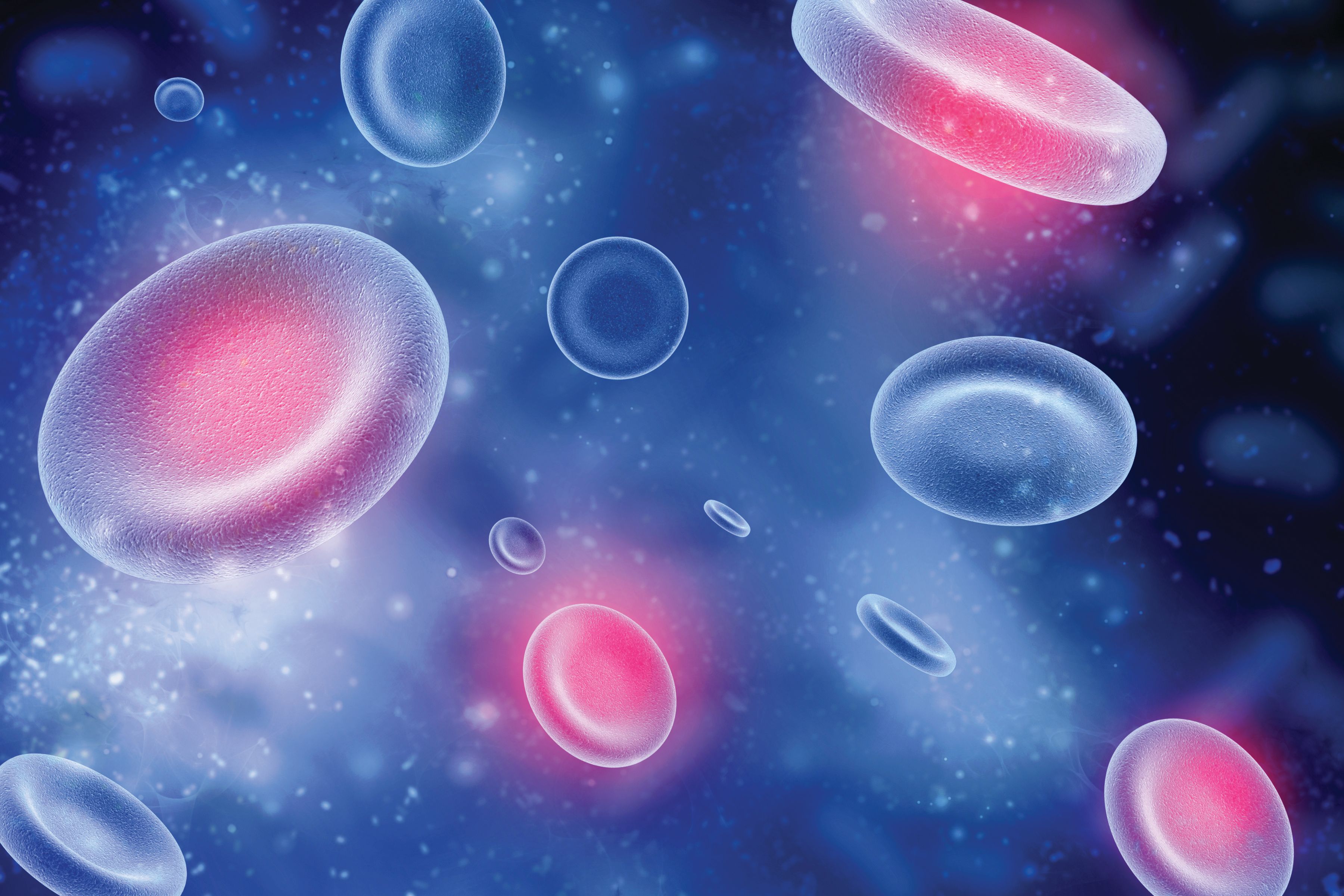Subcutaneous Mosunetuzumab Earns EU Approval in R/R Follicular Lymphoma
Pharmacokinetic data from the phase 1/2 GO29781 study support the European approval of subcutaneous mosunetuzumab in this follicular lymphoma population.
Developers designed subcutaneous mosunetuzumab as a fixed-duration therapy that patients can receive in the outpatient setting. Administered as an approximately 1-minute injection, the subcutaneous formulation may limit treatment time compared with an intravenous infusion across 2 to 4 hours.

The European Commission has granted conditional marketing authorization to subcutaneous mosunetuzumab (Lunsumio) as a treatment for adults with relapsed/refractory follicular lymphoma following at least 2 prior lines of systemic therapy, according to a press release from the developer, Roche.1
Supporting data for the approval came from the phase 1/2 GO29781 study (NCT02500407), in which the subcutaneous formulation of mosunetuzumab demonstrated noninferior pharmacokinetics vs the intravenous formulation with no unexpected toxicities. Additionally, the objective response rate (ORR) and complete response (CR) rate was 74.5% (95% CI, 64.4%-82.9%) and 58.5% (95% CI, 46.9%-68.6%) with subcutaneous mosunetuzumab, respectively. Data also showed a median duration of CR of 20.8 months (95% CI, 18.8-not evaluable [NE]) with the agent.
Among patients who received the subcutaneous agent, the most common any-grade adverse effects (AEs) included injection site reactions (60.6%) and cytokine release syndrome (29.8%). The rates of grade 1/2 and grade 3 cytokine release syndrome (CRS) were 27.7% and 2.1%, respectively. All CRS events occurred within the first cycle of treatment and resolved at a median of 2 days (range, 1-15).
Developers have submitted results from the GO29781 study to other regulatory healthcare authorities across the world, including the FDA. Additionally, investigators plan to share long-term findings from the subcutaneous and intravenous arms of the trial at the 2025 American Society of Hematology Annual Meeting and Exposition (ASH).
“Building on the benefits of its fixed-duration dosing schedule, [mosunetuzumab] can now be administered with a 1-minute subcutaneous injection, providing people with relapsed or refractory follicular lymphoma an additional treatment option to help meet their individual clinical requirements and lifestyle preferences,” Levi Garraway, MD, PhD, chief medical officer and head of Global Product Development at Roche, stated in the press release.1 “Developing new formulations of our medicines is part of our commitment to offering greater flexibility and a better treatment experience for patients.”
Developers designed subcutaneous mosunetuzumab as a fixed-duration therapy that patients can receive in the outpatient setting. Administered as an approximately 1-minute injection, the subcutaneous formulation may limit treatment time compared with an intravenous infusion across 2 to 4 hours.
In the open-label, multicenter phase 1/2 study, patients with B-cell non-Hodgkin lymphoma and chronic lymphocytic leukemia (CLL) were assigned to receive mosunetuzumab intravenously or subcutaneously as monotherapy or in combination with atezolizumab (Tecentriq).2
The trial’s primary end points included the maximum tolerated dose, the percentage of patients with AEs, the serum concentration of mosunetuzumab, and the percentage of those with CRs based on standard criteria for non-Hodgkin lymphoma. Specifically, the primary end point of the subcutaneous mosunetuzumab arm was the pharmacokinetic noninferiority of the subcutaneous formulation vs the intravenous formulation. Secondary end points included duration of response, progression-free survival (PFS), overall survival, ORR, and health-related quality of life.
Patients 18 years and older with B-cell hematologic malignancies harboring expected CD20 antigen expression who relapsed after at least 1 prior line of treatment were eligible for enrollment on the trial. Other eligibility criteria included having adequate hepatic, renal, and hematologic function as well as an ECOG performance status of 0 or 1.
Investigators are currently evaluating subcutaneous mosunetuzumab plus lenalidomide (Revlimid) among patients with previously untreated follicular lymphoma as part of the phase 3 MorningLyte trial (NCT06284122). Patients were assigned to receive the investigational combination or comparator regimens consisting of rituximab (Rituxan) plus cyclophosphamide, doxorubicin, vincristine, and prednisone (R-CHOP); obinutuzumab (Gazyva) plus the same backbone (G-CHOP); rituximab plus bendamustine (Treanda); or obinutuzumab plus bendamustine.3 The trial’s primary end point is PFS.
References
- European Commission approves Roche’s Lunsumio subcutaneous for relapsed or refractory follicular lymphoma. News release. Roche. November 18, 2025. Accessed November 19, 2025. https://tinyurl.com/2pe8r535
- A safety, efficacy and pharmacokinetic study of BTCT4465A (mosunetuzumab) as a single agent and combined with atezolizumab in non-Hodgkin's lymphoma (NHL) and chronic lymphocytic leukemia (CLL). ClinicalTrials.gov. Updated September 12, 2025. Accessed November 19, 2025. https://tinyurl.com/yrpukfdy
- Study of mosunetuzumab plus lenalidomide compared to anti-CD20 anti-body + chemotherapy in follicular lymphoma FLIPI2-5 (MorningLyte). ClinicalTrials.gov. Updated October 15, 2024. Accessed November 19, 2025. https://tinyurl.com/yrpukfdy
Highlighting Insights From the Marginal Zone Lymphoma Workshop
Clinicians outline the significance of the MZL Workshop, where a gathering of international experts in the field discussed updates in the disease state.